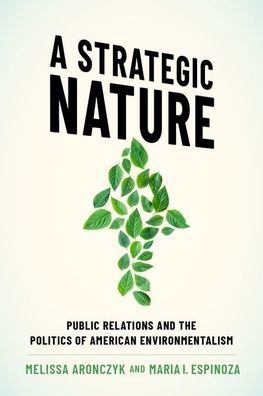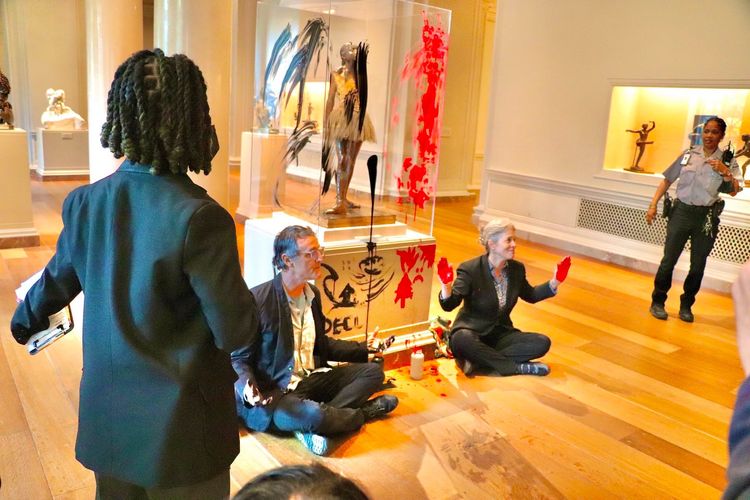Why All COPs Are Bad
The Bar vs. the Stakes
By Mary Annaïse Heglar
The first time I remember paying attention to COP was in 2015 with the passage of the Paris Agreement. It was also right around the same time that I realized that climate change no longer sat on a horizon somewhere, and that the Earth had actually warmed—about a degree at that point. I was horrified and confused to see the level of celebration from the diplomats, given how very, very dire the straits were.
The Paris Agreement was an effort to limit global warming to 2 degrees Celsius, and to make “best efforts” to limit it to 1.5 degrees. This was before the groundbreaking 2018 IPCC report that made it painfully clear to the general public how dangerous 1.5 degrees of warming is, but the negotiators at the conference knew that many island nations had declared 2 degrees a death sentence for them. Still, the hall erupted with cheers after negotiations wrapped up.
Why? Because as inadequate as the Paris Agreement was, it did more than any other global treaty in the 2000s. Now what in the low-expectations-having-ass hell? It’s something we hear a LOT when it comes to climate policy: yeah, this isn’t going to solve the problem, but it’s more than we’ve ever done before. As though expecting your government to solve the problem and, um, save the planet, is just youthful idealism and not your will to fucking live!
I am so sick of being told to buck up and get crunk about pussyfooting and half measures. There’s no such thing as half a planet, or half a future. It’s the eternal mismatch of climate policy: the bar could not be lower and the stakes could not be higher. And don’t give me this “long-game,” we’ll use this momentum to go bigger and harder next time. Just because the political math resets does not mean the climate math does. Politics is a game and climate change isn’t playing.
Why All COPs Are Bad: Q&A with Melissa Aronczyk, co-author of A Strategic Nature
By Amy Westervelt

As COP26 unravels in the same predictable way as the 25 that came before it, it's important to understand why this process seems to fail every time. Because maybe, just maybe, if enough people understand the fatal flaw in the COP process, we can get critical mass behind fixing it. I wrote about this a bit last month in The Nation, but to just re-state it real plainly: you can't negotiate an effective climate solution when your conference is full of fossil fuel lobbyists. If the fossil fuel industry were a country, it would have had more reps at COP than any other country in the world.
It didn't have to be that way, though. The business-friendly approach embraced at COP was pushed by fossil fuel lobbyists and, in particular, by PR geniuses who pushed the idea that effective climate policy required buy-in from oil companies. In their new book, A Strategic Nature, Rutgers University media studies researchers Melissa Aronczyk and Maria Espinoza track this history, from the shaping of Americans' understanding of nature as an economic resource to be managed (rather than a system we're part of and rather dependent upon) to the way business interests infiltrated the international climate policy discussion. Aronczyk talked to me about some of their biggest realizations about the evolution of environmental PR in the U.S.
Subscribe now to read the interview!
“Nice” Isn’t Going to Save the Planet
By Amy Westervelt and Mary Annaïse Heglar
Originally published in The Nation on November 10
“No matter what he says today,” climate activist Lauren MacDonald said through tears in her opening lines at the TED Countdown panel in Edinburgh. “Remember, Shell has spent millions covering up the warnings from climate scientists, bribing politicians, and even paying soldiers to kill Nigerian activists fighting against them, all whilst rebranding to make it look as though they care, and that they have the intention of changing.” She said this even though the TED conference’s organizers had spent four hours pushing her to be more genteel, more “neutral.” She said it even though the man she was talking about, Shell CEO Ben van Beurden, was sitting on the stage with her. When he faltered in his response, MacDonald would not share the stage with him any longer and walked out along with dozens of other activists.
In the aftermath of the TED bust-up, van Beurden went home, opting not to attend COP26 because he said he felt “unwelcome.” At the same time, activists occupied London’s Science Museum to protest its many sponsorship deals with fossil fuel companies. And in the United States, youth climate activists began what would become a two-week hunger strike to demand real climate action from the Biden administration. That strike ended when the group secured various promises from Democrats that a deal on climate policy would be reached—only to have Senator Joe Manchin once again argue that Biden’s Build Back Better bill is just too expensive, demanding that it be run through a thorough analysis by the Congressional Budget Office before he votes on it. Last week, those same activists, still weak from their hunger strike, joined a crowd to swarm Manchin as he drove out of a Washington, D.C., parking garage in his Maserati.
Manchin calls activists like these “entitled”; others call them “uncivil.” At COP this week, Barack Obama chided them for yelling. The executive secretary of the UN Framework Convention on Climate Change (the UN entity that oversees the COP gatherings and whatever treaties come out of them) and organizer of the TED event, Christiana Figueres, cried after MacDonald’s confrontation with van Beurden, not because she’d suddenly realized the folly of inviting an oil exec to a climate event, but because the conflict was all so ugly. These reactions are a profound, willful misinterpretation of what “civil” means when it comes to “civil” disobedience. The word speaks to the power of ordinary people, to the coming together of the public. It does not mean “civilized” or “courteous.”
The reality is that climate activists spent decades politely asking for the world’s leaders to please act on this thing that is going to kill millions. They held respectful dialogue in respectable forums. They produced charts and came up with a plethora of acceptable solutions that, had they been enacted on a reasonable timescale, would not have posed a dramatic threat to the status quo. Over and over again, they met bad faith actors in good faith. And in response they were lied to, and saw little meaningful action. Is political corruption civil? Is it polite for a senator to risk dooming the planet before sailing off on the yacht he bought with the half a million dollars he earns every year from the fossil fuel industry?
Since 2018, the youth climate movement has reminded the world what people fighting for their lives looks like. It’s not well-mannered, nor should it be. Did gracious requests get rid of Jim Crow? Is there any justice movement in history that has succeeded on account of its proper etiquette? As Frederick Douglass said, “Power concedes nothing without a demand. It never did, and it never will.”
If you still think oil companies should be “part of the solution” or that they will voluntarily accomplish what needs to be done, let’s take another look at Shell. Earlier this year, a Dutch court ordered the company to ratchet up its climate commitments and reduce greenhouse gas emissions across the board—not just their own emissions but customers’ as well—by 45 percent by 2030. Shell is appealing that ruling, and in the meantime has announced its own commitment: to reduce emissions 45 percent by 2030, but only its internal emissions, which account for only 10 percent of the company’s emissions overall. What they are willing to do is 90 percent less than what we need them to do.
This is about a year after a handful of Shell’s renewable energy leaders quit because the company’s timeline for getting off of fossil fuels was just too slow. At the time, some Shell executives said the company was actually doing plenty to transition away from fossil fuels—it just wasn’t talking about it enough. Folks, that’s code for more corporate greenwashing. And that was a month after Shell got humiliated on Twitter for just such an approach. They were never engaging in good faith. They don’t know how.
Some folks say that Manchin’s obstinance is proof that the in-your-face approach of youth climate activists doesn’t work. But it’s not like asking him nicely worked either. Moreover, what we see in internal documents from oil companies is that the youth climate movement is the first thing that’s ever really made them worry about losing their social license. In a leaked 2020 marketing strategy doc from BP, executives worried that “the new voices of global influence are changing—from governments, NGO’s & Corporates…to the people.” Uh-oh. Unlike a certain senator from West Virginia, it looks like “the people” might not be so easily influenced and paid off. According to BP’s marketing consultants, the particular challenge of the youth climate movement was their authenticity “Can we become more relatable, passionate, and authentic?” The task, according to BP’s consultants: “to engage and win back the trust of the people with the biggest voice.” Again, those people they’re referring to are youth climate activists, and it’s not because they’ve been so congenial.
If you’re more concerned about manners than survival, understand that that is a luxury. If you are fighting for a livable future, isn’t that worth a little discomfort? After all, if you find civil disobedience unpleasant, you’re gonna hate climate change. Compromise and civility are the comforts of the rich and powerful. If we want elites to act, we’re going to have to make their complacency uncomfortable, and it’s going to require some incivility.
Digest
Rising Temperatures, Rising Tides
The 10 Weirdest Ways Climate Change Is Screwing With Our World, by Brian Kahn for Earther
The Climate Crisis Is Forcing Women and Girls to Sell Their Bodies, by Anya Zoledziowski for Vice
Haunting Satellite Imagery Shows Turkey’s Second-Largest Lake Has Dried Up, by Molly Taft for Earther
Opinion | What Climate Change Looks Like From Space, for The New York Times
IPCC Scientist Survey Shows Most Expect Climate Catastrophe Soon, by Brian Kahn for Earther
The world's progress on climate change, by German Lopez for Vox
UK's Most Durable Snow Patch Fully Melts for Third Time in 5 Years, by Mack DeGeurin for Earther
'Like a War Zone': Climate Change Is Displacing Thousands Within North America, by Anya Zoledziowski for Vice
World's New Methane Pledge Doesn't Include Biggest Emitters, by Molly Taft for Earther
It's Time to Drain Lake Powell, by Peter Deneen for Earther
Climate Change Is Killing My Old Summer Job, by Julian Epp for The New Republic
Climate Presidency
The U.S. Is Not a Climate Leader, by Kate Aronoff for The New Republic
The Mess Democrats Are In, by John Nichols for The Nation
Methane: The lesser-known greenhouse gas that's key to solving climate change, by Rebecca Leber for Vox
Why We Need a “Long Telegram” About the Climate Crisis—Not Conflict With China or Russia, by Katrina vanden Heuvel for The Nation
Democratic Senators Assure UN Talks Build Back Better Is ‘Very Close’ to Passing, by Molly Taft for Earther
Biden’s Energy Secretary Dodges a Question About Oil and Gas Exports, by Kate Aronoff for The new Republic
What the US has promised at the COP26 Glasgow climate summit, by Rebecca Leber for Vox
What Is COP26 and Why Is a Climate Change Conference Important? by Molly Taft for Earther
The White House’s New Climate Strategy: Let Businesses Solve It, by Kate Aronoff for The New Republic
We Talked to Congressional Republicans at UN Climate Talks About Their ‘Rational Approach,’ by Brian Kahn for Earther
A new Supreme Court case could gut the government’s power to fight climate change, by Ian Millhiser for Vox
AOC at COP26: 'America's Back' as a Leader on Climate, by Molly Taft for Earther
5 things to know about the big climate conference in Glasgow, by Umair Irfan for Vox
California Gov Skips Climate Conference, Attends Oil Heiress' Lavish Wedding, by Matthew Gault for Vice
The Supreme Court's EPA Intervention Could Spell Doom for the Administrative State, by Jason Linkins for The New Republic
Climate Accountability
Impressive! Big Oil Sent More People to World Climate Summit Than Any Country, by Anya Zoledziowski for Vice
COP26 Climate Talks Leave a Large Carbon Footprint, Report Says, by Derrick Bryson Taylor for The New York Times
Carbon Markets Are Terrible—But We Need Them, by Stephen Lezak for The New Republic
Fossil Fuel Executives at the Glasgow Climate Talks Are Miffed With the Media, by Kate Aronoff for The New Republic
One Weird Trick World Leaders Have to Stop Climate Change, by Brian Kahn for Earther
Ban Private Jets , by Dharna Noor for Earther
UN Projects 'Go Away' Onto Own Building in Fight With Activists, by Molly Taft for Earther
Can billionaires like Amazon ex-CEO Jeff Bezos slow extinction and climate change? By Benji Jones for Vox
10 Facebook Publishers Drive 69% of Climate Change Misinformation, by Mack DeGeurin for Earther
Rich countries still don’t want to pay their climate change tab, by Umair Irfan for Vox
Here Are the Pledges Made at COP26 – And Why Not Everyone Is Impressed, by Sophia Smith Galer for Vice
The aid sector needs to go green. Here’s why, by André Krummacher for The New Humanitarian
46% of people don't want to change their habits for the climate by Kate Yoder for Grist
Of Course Joe Manchin Drives a Maserati, by Emma Ockerman for Vice
The Climate Talks' Fridges Have a Dirty Secret, by Brian Kahn for Earther
Natural gas company goes to great lengths to avoid saying the word ‘pipeline’ by Kate Yoder for Grist
Justice Is Justice Is Justice
Who Has The Most Historical Responsibility for Climate Change? By Nadja Popovich and Brad Plumer for The New York Times
A COP26 reading list: Ten humanitarian takes on the climate crisis, by Teodora Agarici for The New Humanitarian
Vanessa Nakate, Speaking for Leery Climate Activists, Offers a Challenge: 'Prove Us Wrong.' By Lisa Friedman and Alyssa Lukpat for The New York Times
At COP 26, Island Nations Demand Action on Funding and Emissions, by Tina Gerhardt for The Nation
Young Women Are Leading Climate Protests. Guess Who Runs Global Talks? By Somini Sengupta for The New York Times
How climate change affects women in coastal Bangladesh, by Zakir Hossain Chowdhury for The New Humanitarian
Calls for Climate Reparations Reach Boiling Point in Glasgow Talks, by Somini Sengupta for The New York Times
Climate Activists Say They're Sick of Being 'Youthwashed' at COP26, by Sophia Smith Galer for Vice
“We’re Here to Call for Climate Justice,” Say the Glasgow Protesters, by Mark Hertsgaard for The Nation
Everything Is Going Fine at UN Climate Talks, Why Would You Ask? [Chuckles Nervously], by Molly Taft for Earther
Mothers Demand Action on Air Pollution at COP26, by Jenny Gross for The New York Times
At COP26, Indigenous leaders welcome funding but demand representation, by Paula Dupraz-Dobias for The New Humanitarian
Four ways Mozambique is adapting to the climate crisis, by Neha Wadekar for The New Humanitarian
Hundreds of global civil society representatives walk out of Cop26 in protest by Libby Brooks for the Guardian
In a first, the Justice Department is investigating Alabama’s sewage crisis by Adam Mahoney for Grist
Youth activists petition UN to declare ‘systemwide climate emergency’ by Miranda Bryant for the Guardian
Glimmers of Hope
World-First Plan to End Fossil Fuels Unveiled at UN Climate Talks, by Brian Kahn for Earther
How ‘Cool Roofs’ Can Help Fight Climate Change, by Christina Poletto for The New York Times
Tuvalu Official Delivers COP26 Climate Speech in Feet of Water, by Brian Kahn for Earther
Landmark Agreements at COP26 Put Nails in Coal’s Coffin, by Tina Gerhardt for The Nation
GM, Volvo, Mercedes-Benz Vow to End Gas-Powered Cars by 2040, by Mack DeGeurin for Earther
More Than 40 Nations Pledge to Cut Emissions From Their Health Industries, by Winston Choi-Schagrin for The New York Times
Greta Thunberg and the Teens Go for Broke With New UN Climate Emergency Petition, by Brian Kahn for Earther
Climate in Culture
These Award-Winning Photos Capture Our Planet in Peril, by Shamani Joshi for Vice
Climate Grief Hurts Because It’s Supposed To, by Mary Annaïse Heglar for The Nation
Pope Francis Calls for Prayers for COP26 Climate Talks, by Derrick Bryson Taylor for The New York Times
The History of Corporate Influence on UN Climate Talks, by Molly Taft for Earther
What Does It Take to Build a Disaster-Proof House? By Candace Jackson for The New York Times
Coffee crisis: How to breed — and farm — a better cup, by Sarah Sax for Vox
Disney's Wall-E NFT Is Exactly What Wall-E Warned Us About, by Mack DeGeurin for Earther
Haunting Images Depict Children at the Front Lines of the Climate Crisis, by Koh Ewe for Vice
Not Great: Watch This Video of a Glacier Melting Faster Than It Can Recover, by Simon Childs for Vice
How Sea Level Rise Could Drown the Fast Fashion Industry, by Molly Taft for Earther
Wolf Blitzer Gets Lost on the Way to Glasgow Climate Talks, by Brian Kahn for Earther
Plus more
Australia Continues to Get Dunked On as US and China Announce Climate Pact, by Julie Fenwick for Vice
Conspiracy Theorists Have a Wild Theory About Insulate Britain, by Francis Blagburn for Vice
Climate Activists Deflate Tyres of 60 SUVs in City Hosting COP26, by Simon Childs for Vice
Photos: Toxic Foam Mars Indian River Festival, by Molly Taft for Earther
A Vegan Haggis Tour of Glasgow During UN Climate Talks, by Brian Kahn and Molly Taft for Earther
Can Michelle Wu Save Boston?, by Miles Howard for The New Republic





Only paid subscribers can comment.
Please subscribe or sign in to join the conversation.